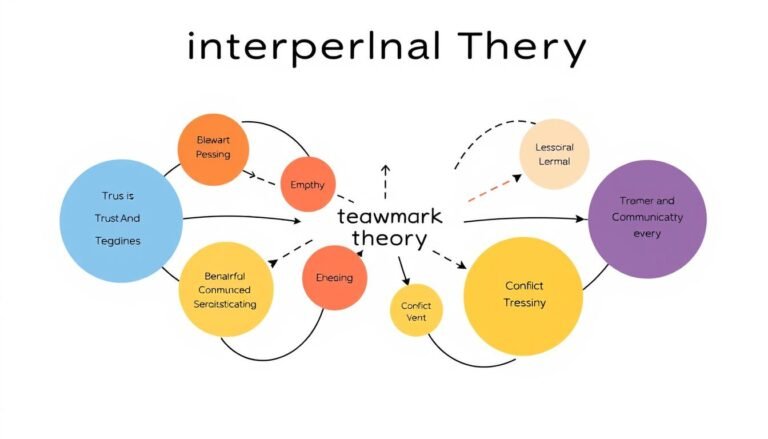Cultivating Mentally Healthy Irish Workplaces Through Leadership
Imagine a busy Dublin tech office on a regular morning. The team meets for their quick stand-up gathering. They update each other on projects and share some laughs. The vibe is light but focused.
One manager stands out for her caring approach. She sees a team member looking down. Instead of ignoring it, she talks with him after the meeting. This simple act shows how important leadership is in mental health matters.
The need for good mental health at work is clear from the high costs. In the U.S., businesses lose $225.8 billion each year due to these issues. This is why leaders must put mental wellness at the top of their list.
Being a good mental health leader is about understanding, standing strong, and talking well. These things make for a happier, more effective workplace. Leaders who care about mental health are emotionally smart. This helps them build a place where people can talk openly, want to stay, and learn healthy ways to deal with tough times. Everyone benefits from this approach.
Key Takeaways
- Mental health issues significantly impact workplace productivity.
- Prioritizing mental health in leadership fosters a supportive work environment.
- Empathetic leaders enhance communication and build trust among employees.
- Resilient leaders reduce stress levels and inspire team performance during tough times.
- Understanding employees as individuals rather than resources is key to successful mental health initiatives.
The Importance of Leadership in Workplace Mental Health
Leadership is key in promoting mental health at work. Effective leaders create a culture that values mental wellness. They establish an environment where supporting mental health is a top priority.
Leaders with strong skills in mental health can boost their team’s well-being and productivity. Shockingly, less than 44% of employees feel safe sharing their stress or mental issues with their boss. This shows a clear need for better leadership in handling mental health at work.
Stress often leads to employees taking time off work in many EU nations. This makes it clear that leadership is crucial in maintaining mental health at work. When leaders put mental wellness first, companies benefit from a more efficient and productive workforce.
Public and voluntary sectors tend to support employees dealing with mental health issues more than others. This hints that all industries could learn from their practices. The goal for leaders should be to create workplaces that focus on encouragement and recognition, rather than criticism and excessive workloads.
The impact of leadership on mental health isn’t just a theory; it’s backed by data. In Ireland, good mental health support leads to higher loyalty among employees. Offering flexible work options can decrease stress and burnout, boosting satisfaction and success in the long run.
Leadership Strategies for Mental Health in Irish Organizations
Effective leadership is key to better mental health at work. Irish organizations can make big improvements by using leadership strategies for mental health like understanding, flexibility, and clear talk. For over 50 years, Mental Health Ireland has worked on better mental health and understanding mental health problems nationwide.
Empathy is very important. Leaders who get and feel what their team goes through create a caring atmosphere. This matches with Mental Health Ireland’s core goal. It has earned the community’s trust for its work on mental health well-being.
Adaptability is crucial too. Today’s leaders must meet their team’s changing needs. Mental Health Ireland’s 2019-2021 Strategic Plan uses many groups and board members to reach its goals. Research shows organizations with flexible leadership do better with mental health and work culture.
Then, there’s open communication. Setting up a space where team members can easily talk about what’s bothering them is crucial. Bad mental health can hurt both the person and the business. Mental Health Ireland gets this, with lots of support at local and national levels.
Finally, support for mental wellness in organizations must cover everything. By using smart leadership, Irish companies can build a workplace that’s good for mental health. This helps both the team’s health and how effective they are.
Creating a Positive Work Environment in Ireland
Creating a positive work environment in Ireland is key. It helps employees feel valued and motivated. According to a 2015 report, most organizations worldwide saw culture and engagement as key challenges.
Over two million work in Ireland, so promoting health at work is crucial. Companies that care about their staff’s well-being see a big boost in happiness and work output.
Empathy in Leadership
Empathy stands as a cornerstone for good work environments in Ireland. When bosses listen and try to see things from their staff’s perspective, it builds trust. This trust leads to a 58% increase in staff satisfaction when feedback is listened to carefully.
About 69% of workers do more when their efforts are noticed. Plus, recognizing good work can drop the turnover rate by 31%. These steps help make a work atmosphere that people enjoy being part of.
Resilience and Adaptability
Resilience is a must-have in the workforce. Encouraging employees to keep learning makes 88% of them happier. This continuous learning also helps them stay adaptable.
Having clear ways to solve conflicts also improves the work environment. It makes things fair. Interesting, companies with very engaged teams do 147% better with their earnings.
Focusing on empathy and resilience can boost a company’s success. It makes team interactions better and spreads positivity.
Promoting Mental Wellness in Irish Companies
In Ireland, mental health issues cost workplaces about €3 billion each year. To cut this cost, it’s crucial for Irish companies to focus on mental wellness. They need to adopt wellbeing programs that make their employees healthier and more productive.
Implementing Mindfulness Practices
Mindfulness at work means being completely focused on tasks. It can help people lower their stress levels and boost their mental health. Companies can support this through activities like:
- Physical activity programs
- Mental health support
- Nutrition guidance
- Work-life balance strategies
Adding proven strategies to wellbeing programs makes them work better. It’s important to check how effective these efforts are with tools like surveys and health checks.
Encouraging Open Communication
Creating a culture where people can openly talk about mental health is key. Sadly, not many employees feel comfy discussing it with their boss – less than 35%. Leaders need to make sure their team members feel safe to share their struggles.
To achieve this, they might:
- Train managers to help with mental health issues.
- Run Mental Health First Aid programs.
- Offer wellness rooms for relaxation and meditation.
A good approach is to tackle the fear of talking about mental health, as 32% of employees worry about the outcome. Making employees feel their wellness is a top priority helps companies tailor their mental health support.
Thus, combining mindfulness and a culture of openness can make Irish workplaces much better. People are likely to be happier and more engaged in such an environment.
Building a Mentally Resilient Workforce in Ireland
In today’s changing work world, it’s crucial to ensure mental health strength. Yet, only one in five Irish companies actively focuses on mental health. It’s vital for leaders to show the way in building mental toughness in their teams.
About just over 20% of businesses in Ireland have a mental health strategy. Very few, only 10%, have mental health champions. This lack shows a big need for more support, like using Employee Assistance Programs (EAPs).
Since the pandemic, the number of Irish firms allowing remote work has tripled to one-third. Big companies, mainly in business services, are the leaders. They use remote work and flexible hours to boost employee well-being.
The impact of mental health problems isn’t just personal; it’s economic too. Stress that leads to absenteeism costs Ireland about €1.5 billion yearly. Preventing and managing these issues early is key to saving money and keeping the workforce strong.
Irish companies are waking up to the importance of mental health. But, one in three hasn’t appointed a key person to lead in mental health resilience. Building strong, lasting mental health programs and encouraging open talks about mental well-being is a must.
Psychologists stress the need for managers to be well-trained in mental health awareness. Their support can make a huge positive impact in the workplace. More talking about mental health and education should keep happening, even after the pandemic is over.
Empathy: A Core Component of Effective Leadership
Empathy is key in making leaders effective. It allows them to really get their employees. When leaders show empathy, it makes their team feel supported. This helps everyone’s mental health.
Understanding Employee Needs
It’s crucial for leaders to know and care about their team’s mental health. Frances Abeton, who has 30 years in healthcare, shows how. She uses things like focus groups from WHYZE Health. This gives workers info to make smart choices for their health.
Reducing Stigma Around Mental Health
Ending shame about mental health is tough for many groups. Recent studies say being caring helps create a place where people feel free to talk and support each other. An article by the Academy of Management in 2012 said this is a big deal. They said companies should focus on compassion. Training by Weng, Fox, and Davidson proves caring can grow in organizations, helping the team’s happiness.
Focusing on mental health and fighting stigma helps workers feel cared for and understood.
The Role of Resilience in Mental Health Leadership
Being resilient and adaptable is key for leaders in mental health today. It’s all about facing challenges, growing, and feeling ready for change. This approach helps leaders and their teams deal with setbacks and build a confident, forward-thinking culture.
Cultivating Resilience in Teams
Building resilience in a team involves making a safe and supportive space for everyone. It’s shown that up to two in five healthcare workers have faced anxiety, depression, and other challenges during pandemics. But, studies have found that being resilient can reduce stress and anxiety at work. By doing so, it makes the workplace a more positive place.
A big review looked into how 11,907 healthcare workers dealt with pandemics. They used info from places like PsychInfo and the Cochrane Library to find out more. The bottom line was clear: resilience is crucial for staying mentally healthy in tough times.
Adapting to Change and Uncertainty
Dealing with change and the unknown is part of great leadership. Just think about how the world had to adjust during COVID-19. Nearly 7 million people died because of it. Leaders who could adapt helped keep their teams on track and stable.
In mental health work, leaders must always be ready for new challenges. This means helping individuals and teams handle stress better. By improving mental health support, organizations can become stronger and more flexible.
Practical Steps to Support Mental Health in the Workplace
Helping employees with their mental wellness makes a great workplace. Companies should put money aside for mental health. This includes things like counseling, stress workshops, and teaching about mental health. When businesses invest in their team’s mental health, everyone benefits. Workers are more into their jobs, happier, and do better.
Managers play a key role too. They should encourage a work culture that’s open and friendly. It’s good for them to have regular chats with their team. That way, they can notice if someone is stressed or tired early on. Training managers to help with mental health issues is also important. It’s because problems like feeling sad or anxious can keep employees from working. This can be a big deal in many countries.
Companies must also have rules to reduce mental health-related time off. A good work climate that values mental well-being helps everyone work better and stay longer. Take Australia for example. Many small businesses there pay a lot of tax. They also employ many people. By showing how much they care about their workers’ mental health, Australian businesses are really successful. This shows that caring for mental health in the workplace is not just good for a company. It’s good for a whole country or even the world. As we all understand more about mental health, it’s very important for every business to take action. These steps are not just good for the business. They are good for the people working there too.
FAQ
Why is leadership important in shaping mental health culture in Irish workplaces?
Leadership is key in creating a healthy mental health culture in Ireland’s work areas. Leaders inspire the team with values that focus on mental health and well-being. They make sure mental health is a big part of the workplace, boosting not only employee happiness but also their productivity.
What skills are essential for mental health leadership?
Key skills for leading in mental health include empathy, clear communication, adaptability, and toughness. It’s crucial for leaders to handle their emotions and their team’s. They should keep communication lines open and stay strong through tough times. These skills help make the workplace better and keep everyone mentally healthy.
How can leaders implement strategies for mental health in their organizations?
To improve mental health, leaders should be understanding and ready to adapt. They must listen to what their team needs and offer help. They can also start mental health programs and provide ways for managing stress. Making sure learning and growth are always encouraged is important too.
What role does empathy play in leadership?
Empathy is critical for leaders to be effective. It lets them relate to their team members’ needs, creating a supportive atmosphere. This approach helps fight against the stigma of mental health. It encourages open talks and builds a workplace that values everyone’s mental well-being.
How does building resilience and adaptability create a positive work environment?
When employees are adaptive and resilient, they handle challenges well. If leaders show and encourage these traits, their teams also grow. A positive attitude towards learning from failures leads to better work and mental health for all.
What are some practical steps to promote mental wellness in Irish organizations?
Boosting mental health can be done through mindfulness, talking openly, and providing resources. Leaders can organize sessions to manage stress and stay present. They should also create a safe space where employees can talk about their mental health concerns to get help early.
How can leaders cultivate resilience in their teams?
Leaders help their teams be tough by offering support and stress management resources. They should praise achievements and encourage a mindset that finds lessons in challenges. By being resilient themselves, leaders show their teams the way to grow through hard times.
Why is it important to reduce stigma around mental health in the workplace?
Lowering mental health stigma is crucial to make employees feel they are in a caring place. Stigma can stop people from getting the help they need, affecting their work and happiness. Openness and empathy from leaders fight this stigma, making a workplace that welcomes and supports all.
What are some effective mental health initiatives that can be implemented in the workplace?
Good mental health programs include awareness campaigns and practical help like EAPs. Stress workshops and mindful training also work well. It’s also key to invest in mental health, create work policies that balance with life, and ensure a supportive environment.
Source Links
- Leadership Strategies for Promoting Mental Health Awareness.
- Tanmoy Goswami on LinkedIn: Wait wait wait wait wait. Stop. Hold on to your biiiiig, revolutionary…
- WP Engine Ireland is a Great Workplace for Health and Wellbeing
- Initiating a conversation about mental health in the workplace
- Nurturing Minds: The Crucial Role of Mental Health in the Workplace
- Prioritizing the Mental Health and Well-Being of Healthcare Workers: An Urgent Global Public Health Priority
- Microsoft Word – Dissertation- Approaching Mental Health and Wellbeing in the Workplace- A Qualitative Exploration from the Perspectives of Line Managers .docx
- The Mental Health and Wellbeing Series | Create a Mentally Healthy Organisation
- Developing Organisational Culture – A Guide for the Health Service
- How can HR professionals in Ireland foster a positive workplace culture?
- Microsoft Word – Public Policy Mechanisms Final
- Wellness Wisdom: Cultivating a Healthy Workforce in Ireland
- RDJ LLP | Employee Wellbeing at RDJ LLP
- 5 Tips To Boost Employees’ Health & Wellbeing At Work
- How can Irish employers support the mental health of their employees?
- Who to Watch in Workplace Wellbeing in Ireland in 2022 — Work Well Community
- Building Psychologically Safe Cultures of Health and Not Random Acts of Wellness is Now an Organisational Post Pandemic Priority.
- Leading with Heart: Frances Abeton of Whyze Health On The Power of Authentic Women’s Leadership
- Blog Archives
- Emotional Intelligence Archives – Leadership, emotional intelligence & high performance teamwork in Ireland.
- Resilience among health care workers while working during a pandemic: A systematic review and meta synthesis of qualitative studies
- Mark Lyttleton – The Importance of a Progressive Company Culture Regarding Mental Health
- When Size Matters: Creating Mentally Healthy Workplaces
- (PDF) Mental Health Promotion Interventions and Supports Provided by Voluntary Organisations to Workplaces Full Report
- Workplace-Based Organizational Interventions Promoting Mental Health and Happiness among Healthcare Workers: A Realist Review








